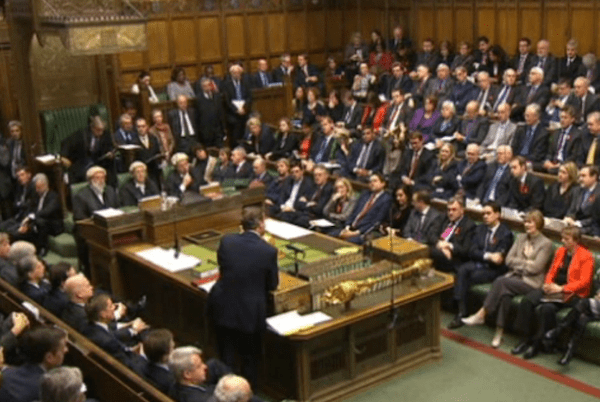While Leveson packs his sun-cream and flip-flops and prepares for a holiday in Australia, the nation holds its breath in anticipation of his report. One lucky citizen, the prime minister, is permitted a sneak glance at the findings of the great inquisitor into press malpractice.
At 11.45 this morning, the monumental hardback landed with a thump on Number 10’s doormat. David Cameron barely had time to turn to the index and see how many name-checks he’d been given before he was whisked off to the Commons to answer questions from Ed Miliband.
It was not a great occasion. The opposition leader challenged Cameron on the failure of the Work Programme, (b. June 2011), to terminate long-term unemployment. Reports yesterday revealed that just 3.5 percent of the programme’s recruits had graduated into permanent jobs. Miliband claimed it was barely 2 per cent.
Cameron took no notice. He bullishly announced that whole thing had been a marvellous success. Eight hundred thousand people had taken part, he said, and two hundred thousand had found work. Which sounds like a triumph. Except that Mr Miliband is correct. Only a tiny fraction of participants have found work for six months or more.
But Cameron was determined to rescue his wounded puppy from Miliband’s molestations. He quoted a CBI report claiming that the Work Programme had helped ‘turn around’ the lives of thousands. As in, turn around and head for the dole office, presumably.
Miliband unwisely compared the Work Programme with Labour’s chosen solution, the Future Jobs Fund. This brilliant scheme, he declared, had found work for 120,000 youngsters.
Yes, said Cameron, but 98 per cent of those jobs were in the public sector.
The conclusion – that government is constitutionally incapable of turning the Job Centre into the Harvard Business School – is obvious to everyone untouched by the Westminster delusion. Ed Miliband meanwhile became fixated on a statistical detail which has about as much bearing on the problem as a cornflake has on the gravitational pull of Neptune.
He pressed Cameron to admit that ‘long-term unemployment has risen by 96 per cent since the Work Programme began’.
When faced with tricky statistics like this, Cameron turns the other way and starts to whistle. Or, in parliamentary language, he turns Brown. He’s now so adept at rhetorical duplicity that he appears not to know the difference between ‘answering the question’ and ‘answering any question’.
He heaped abuse on Labour’s ‘poisoned legacy,’ and boasted that his government had reduced claimant numbers by 190,000, and created ‘a million private sector jobs.’
Miliband’s reply matched the PM’s for predictability. ‘The more he blusters and the redder in the face he gets, the less convincing he is,’ he shouted.
Cameron began to fidget and shift as Miliband trundled through some pre-scripted tri-partite insult. ‘We have a work programme that’s not working. We have a deficit that’s rising. We have a government that’s failing …’
At this point, Cameron squirmed in his seat like a hungry child hoping to hear the dinner-gong. And instantly the Labour benches pounced. ‘Calm down!’ they shouted. ‘Calm down!’ Cameron tried to laugh it off by pointing at his watch. He gestured for Miliband to conclude his attack.
‘He can’t keep his cool when he knows he’s losing the argument.’
‘It’s his leadership that’s drowning,’ hooted Cameron vapidly.
As the session ended, William Hague stood up to make a statement on Palestine which may mark a decisive shift in British policy in the middle-east. But Cameron didn’t wait to listen. He sprinted out past the Speaker’s chair in a blur of grey tailoring. He was gone. His famous Brylcreemed quiff flashed briefly in the overhead lights as he vanished.
It was Leveson, not lunch, that was on his mind.







Comments